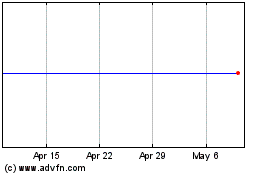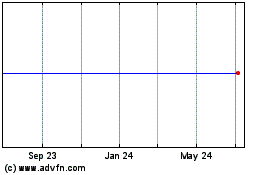Volatile Markets Not Hurting Companies' Prospects, Executives Say
February 08 2018 - 3:30PM
Dow Jones News
By Austen Hufford, Aisha Al-Muslim and Maria Armental
Company executives on conference calls with analysts this week
have brushed off concerns about recent volatility in stocks as part
of a normal, functioning financial market. The gyrations are part
of a week where the Dow Jones Industrial Average had the largest
single-day point decline in its history and global markets have
been roiled.
At the same time, central banks around the globe, including the
Federal Reserve, are mulling rate increases.
Here is how S&P Global Inc. Chief Executive Doug Peterson on
Tuesday described the impact of recent market activity on the
company.
"We've built our plan, our approach to the markets looking at
the economies right now, which are growing. Inflation is still low.
Rates are still low. Banks have very strong liquidity and very
strong capital around the world. Tax reform, we think, is a
tailwind for the U.S. economy. And so, we do believe that overall
economic conditions, putting aside some volatility in the markets
and all of the transformation taking place in technology around us
are going to be very positive aspects to how we're going to grow
the business going forward."
On Tuesday, BNP Paribas SA said the recent stock market moves
could have been expected as the market returns to a more normal
amount of volatility from historic lows.
"Volatility has been very low in the second half of 2017,"
finance chief Lars Machenil said. "So, it was to be assumed that
there would be a kind of an evolution back to more normal territory
and that that transition could be a bit bumpy is maybe what we are
seeing today."
Bearings maker RBC Bearings Inc. said Tuesday that 2018 should
be a good year for U.S.-based manufacturers unless consumers get
spooked by stock market declines.
"It's a very broad-based manufacturing resurgence. And I think
when I look at the way that this new tax law has impacted RBC, and
I multiply that times 10,000 companies, I think the effect of this
new tax law on what's going to happen in calendar 2018 is going to
be very impactful," CEO Michael Hartnett said on a call. "That
assumes that the stock market doesn't scare the hell out of the
consumer."
Highwoods Properties Inc.'s CEO Edward Fritsch told analysts
Wednesday that despite the volatile start to the year in the
financial markets, the office real-estate investment trust has
several reasons to be upbeat. He highlighted the steadily
increasing economic growth nationally, and continued job growth and
real-estate fundamentals remaining healthy across its Southeastern
markets.
"With all the volatility surrounding the financial markets, it's
easy to get swept up in the headlines," Mr. Fritsch said. "However,
conditions in [best business districts] office land remain
steady."
PJT Partners Inc.'s CEO Paul Taubman told analysts Wednesday
that the recent market volatility will have a short-term negative
effect on merger-and-acquisition activity, but "in the intermediate
term, it's going to be quite healthy."
"The fact is that these corrections are very healthy for the
system," Mr. Taubman said. "They're quite disruptive and concerning
in the very, very near term. But once you get this behind you, our
sense is you probably have a better risk reward trade-off on
valuations, probably sellers who've just seen every day that they
wait, asset values increase."
"I think for a lot of reasons, corrections or---I like to joke
they're little bit like annual physicals, which is they're good for
your health, you always want to put them off, they're never fun
having, but you're glad you had them done," Taubman said. "And I
think that's a little bit how we think about this current
correction that we're going through. It's not particularly
comfortable, but net-net over time probably healthy in getting
valuations back into line between buyers and sellers."
Willy Walker, CEO of Walker & Dunlop Inc., a commercial
real-estate financial products and services company, told analysts
Wednesday that he hasn't seen any patterns of deals falling out
because of the recent market volatility and rate movements.
"The people who have deals that are under contract, they're
moving forward with them," Walker said.
He added, "Market-rate volatility and rates moving up does make
certain deals challenging with borrowers who are very
rate-sensitive on how they are buying and what they are buying. And
as a result of that our bankers have to work very hard to come up
with creative solutions" such as early rate locks.
Commercial real-estate company CBRE Group Inc. said Thursday
that some of their buyers had expressed worries over the stock
market and interest rates.
"We're hearing from them some level of concern. They're not
overwhelmingly concerned, but they're watching it closely and they
think there is more reason to watch it now than there has been for
several years," CEO Robert Sulentic said. "That's one of the
reasons why we don't think there'll be a real growth in sales
volumes this year, in an otherwise good economy."
Write to Austen Hufford at austen.hufford@wsj.com, Aisha
Al-Muslim at aisha.al-muslim@wsj.com, and Maria Armental at
maria.armental@wsj.com
(END) Dow Jones Newswires
February 08, 2018 15:15 ET (20:15 GMT)
Copyright (c) 2018 Dow Jones & Company, Inc.
RBC Bearings (NASDAQ:ROLL)
Historical Stock Chart
From Mar 2024 to Apr 2024

RBC Bearings (NASDAQ:ROLL)
Historical Stock Chart
From Apr 2023 to Apr 2024
